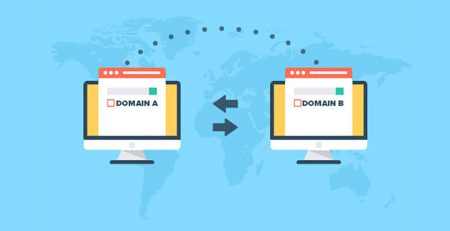Making Your Website SEO-Friendly
The practice of making your website more accessible to search engines like Google, Bing, and Yahoo is known as SEO, or search engine optimization. But why would you want your website optimized? By producing content that is simple to locate and pertinent to what people are looking for, you can optimize your website to improve Google search results and increase traffic to it.
What is SEO?
The easiest technique to improve your website for search engines like Google is through search engine optimization (SEO). Because clients can’t buy from you if they can’t discover you, every company should be doing this. Make sure to have a neat, simple-to-navigate website that makes buying simple and fun if you run an online store. Similarly, if you work as a freelancer or service provider, highlight your qualifications and client endorsements. Be transparent about what you do in order to optimize SEO for users rather than robots. Avoid wasting time with too technical or flowery language that fails to address the most important subject: results.
Why do you need to optimize your website for SEO?
If you want to remain competitive, it’s critical to optimize your website. Your website will rank higher in their results if it is optimized for search engines like Google, Yahoo, and Bing, which will result in more visits. This is especially important if you sell goods or services online rather than through a physical store. Imagine how much more difficult it would be without adopting at least some Internet marketing strategies while attracting customers through traditional marketing means! Optimizing for search engine optimization (SEO) should be one of your aims if maintaining your competitiveness with other firms is one of them. When applied properly, SEO can significantly boost traffic—and sales—while aiding in the development of brand recognition and expanding a business’s online presence.
How do you know if your site needs optimization?
We advise starting there if you are unfamiliar with SEO. Nevertheless, if you already know what it is, there are a few indicators to watch out for that might assist you in determining whether or not your site requires optimization. Your website might benefit from some tweaking if any of these statements are true. And don’t worry; optimizing only requires that you adhere to a few straightforward instructions in our optimization guide here. Start right away! You won’t be sorry!
You need to know some hidden tips for a successful Facebook page
You must make sure you aren’t missing anything if you want your Facebook marketing efforts to be as successful as possible. Which brings us to a common self-question among digital marketers: Do I really need anything other than my Facebook page? Is it possible that spending my time and effort somewhere else would be more beneficial? It depends on why you’re establishing a Facebook page and how strictly (or loosely) you intend to manage your campaign, is the response. Read more underneath.
How many times should I post per day?
Timing and personal preference are the deciding factors in this case. We advise publishing at least twice daily as a minimum (or about 12x per week). Remember that on any given post between your followers’ News Feeds, only 20–25% of your audience will likely view it. So, if you’re just getting started, don’t anticipate results right away. To increase your chances of exposure, it is advised that you choose to post at least three or four times per day if you intend to run an aggressive Facebook campaign. We now go on to our next subject.
A case study
Make sure your website is operating at its peak efficiency when improving it. All of your website’s components should work together to promote and advance your target keywords. Users can more easily navigate across your website to achieve their goals, and search engines can best optimize your page rank in their own algorithms. Here are some ideas for site optimization that will help you accomplish both: SEO User Optimization (SEO):
Enhancing your SEO ranking is just one component of a successful user experience. Optimization takes both into account since users must be able to find and consume your material with ease. By ensuring that users can access the information they require with ease, effective optimization promotes user engagement with a website. Additionally, it improves search engine results by attracting targeted visitors with high conversion rates who will make purchases within predetermined time periods, shortening the sales cycle compared to rival websites that are not optimized.
What are the best actions to take?
One subject that is all too frequently misunderstood is search engine optimization (SEO). To begin with, it’s a long-term endeavor; results won’t appear right away. Having said that, you can update your website right away to increase the likelihood that consumers will find it in search engines.
Below are 5 quick ways to optimize your site for search engines:
1. Use Keywords, But Don’t Overdo It
Make sure you have relevant information to support the keywords and phrases you use in your copy before using them. Users that search for certain terms will be routed to useful information, increasing the likelihood that you’ll see results.
2. Incorporate Keyword Research into Your Workflow
Before beginning your project, research the terms users are using to find similar content. This can help you determine whether you are writing for an audience or about a topic that no one cares about.
3. Keep Meta Descriptions & Titles Concise & Readable
By assisting users in deciding whether or not to come, a brief description of your page’s content (combined with a few keywords) might improve hits from search engines.
4. Optimize Your URLs for Search Engines
People will be able to find what they’re looking for even if they can only recall a few words from the title if you use distinct URLs for each page of your site and link back to those pages from other pages.
5. Make Sure Links Are Relevant & Accurate
You absolutely do not want Google to consider your website to be spam. Make sure all of your website’s links are accurate and pertinent to one another to avoid that problem; don’t just buy links to try to increase your ranks!
Summary
One of your most crucial marketing methods is search engine optimization, but it’s also a really difficult and misunderstood procedure. Even if there are numerous things to take into account, you can’t optimize a page before you know who it should be for and what it should say. Fortunately, we can simplify it into three main ideas:
- optimize content (not code),
- write with people in mind,
- make sure every link counts.













Leave a Reply